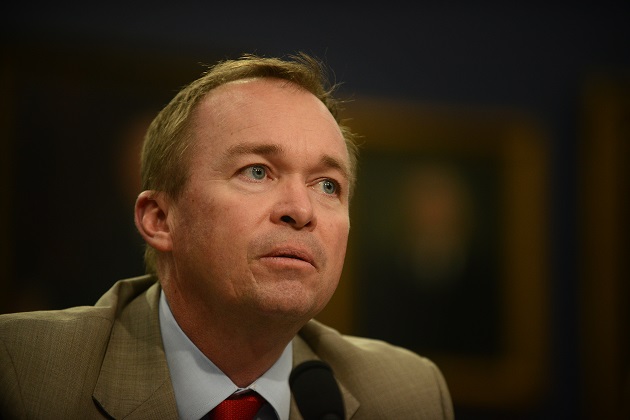If it ain’t broke, don’t fix it
For the second day in a row, the FT’s Gillian Tett made into in the WYWW recap. This time, she offers up a measured view of President Trump’s performance on rolling back Dodd-Frank. Tett is spot on in her analysis that Congress isn’t really going to repeal and replace the landmark financial regulatory reform legislation. And the issue isn’t really a hot topic for President Trump either.
But the truth is, it doesn’t really matter if Trump or Congress make many more efforts at de-fanging Dodd-Frank. That job was always going to be the task of the individuals placed atop and within the various regulatory agencies. The people put in charge of the SEC, CFTC, CFPB, OCC, Federal Reserve, etc were put there to eliminate as many regulation as possible and/or do as little as possible to enforce rules they couldn’t wipe from the books. And it is a mission those people are tackling with exceptional vigor.
Members of Congress will continue to make noise about repealing and replacing Dodd-Frank because they need the money, but the fundamental question that needs to be asked is simple: why? Rules put in place as part of Dodd-Frank have helped the financial system remain stable while banks enjoyed record profits in 2017. Not just strong profits; record profits. What exactly is it that is not working?
This is pretty funny
The fact that Sen. Elizabeth Warren would have some choice words for Mick Mulvaney comes as no surprise. Warren is the godmother of the CFPB and Mulvaney, when he is not busy running the OMB, has been doing an exceptionally vigorous job of not running the CFPB.
The CFPB hasn’t managed to take a single enforcement action since Mulvaney took the helm. Meanwhile, Mulvaney has pushed to remove a database of consumer complaints from public view because such transparency is unfair to banks.
The real gem is how Mulvaney says some of the oversight conducted by the CFPB should really be done by the likes of the Office of the Comptroller of the Currency. The same OCC whose leader declared on Tuesday that banks are its “customers.”
Rut-Roh
It sounds like there is trouble ahead for the US leveraged loan market. The friendly portion of the credit cycle has stretched on for quite a while and looks to be coming to an end. Nevertheless, loan covenants are reportedly getting weaker, rather than stronger. This quote from S&P’s Paul Draffin pretty much sums it up:
“History shows us that the worst debt transactions are done at the best of times . … Now is the perfect time to be cautious.”
What could possibly go wrong?
Hot scoop from Lloyd Blankfein
Goldman Sachs boss Lloyd Blankfein thinks people need to get used to the political uncertainty – both at home and abroad – that has become a constant during the Trump administration. Yeah, thanks Lloyd. We noticed.
The BIS analyzes financial spillovers and spillbacks
The Bank for International Settlements has published a paper that weighs how international macroprudential policy coordination can effect currency unions. Ultimately, the paper lauds international policy coordination and calls for more collaboration between major advanced economies and what the researchers call “systemic middle-income countries.” And yes, it is OK if you have no idea what a spillback is.
WYWW Appetizers
- These are good times for BlackRock.
- Swiss banks have boosted their operational risk-weighted assets.
- “It looks like we are heading towards red banks and blue banks.” If so, I would bet on the blue banks.
